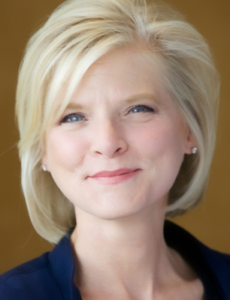 Kathy Elsesser, Managing Director and Head of the Global Consumer Retail Group in Investment Banking at Goldman Sachs, speaks enthusiastically about the opportunities for women in the financial services. She believes that women can achieve their full potential by being authentic and thinking carefully about what they want in life.
Kathy Elsesser, Managing Director and Head of the Global Consumer Retail Group in Investment Banking at Goldman Sachs, speaks enthusiastically about the opportunities for women in the financial services. She believes that women can achieve their full potential by being authentic and thinking carefully about what they want in life.
“Know what you want and ask for it. I have noticed a tendency on the part of the women I mentor to take what they’re given and do well with it. But the question I try to ask them is ‘what do you really want?’” She continued, “Ask for the things that will help you get that – versus accepting the things that are presented to you.”
And that mindset can benefit women throughout their career – from the entry level all the way to the top. She encouraged women to think carefully about how their skills and talents could be best leveraged at work. “Especially for women who decide to have a family, I would encourage them to think every day about how they are spending their time. As you get older, you begin to realize that time is a limited resource.”
She continued, “When you have a new project, think about whether this is important, or whether, if you personally do it, it is going to have an outsized return relative to someone else taking it on.”
“I really see women take on what they are given rather than asking whether it’s the best use for their time. If someone else can do it, give it to them and find a higher and better use for your time.”








